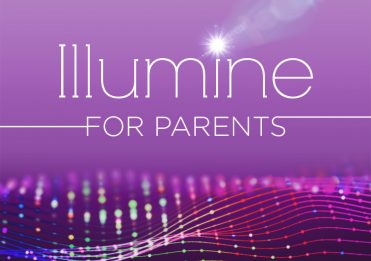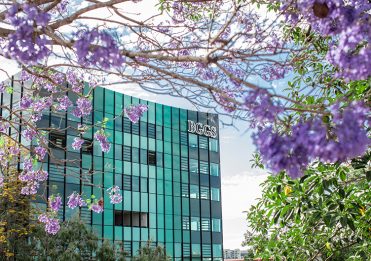Dr Bruce Addison, Deputy Principal (Academic)
Schools as Homes for the Mind is a wonderful book by American scholar Art Costa. It has always resonated with me. Schools as Homes for Mark Books doesn’t work quite as well. To me, schools have always been much more than results. This might sound a little strange coming from someone who is responsible to the Principal for the academic side of the School at an institution such as Brisbane Girls Grammar School. My worldview has always been that if we look after teaching and learning, in the context of genuinely robust exchanges of ideas and well-honed thinking and analytical skills, academic results will follow. This is in line with Vygotsky’s (1978) thinking that, ‘children grow into the intellectual life of those around them’ (pg. 88). The nurturing of a school culture that is genuinely, and not just rhetorically, aligned to the development of ‘sticky’ knowledge founded on the premise of visible thinking in relational classrooms must be one of the most fundamental demands of educational leadership. As Parker Palmer (2011) notes:
The relational dynamics of the classroom have a more lasting impact on students than information that they retain just long enough to pass the test. Too many students spend long hours in classrooms where they are mere audience to a teacher’s performance. They become passive recipients of expert knowledge rather than active participants in a process of inquiry, discovery and co-creation (p 133).
There is much congruence of thought regarding this in educational circles, but sadly not much congruence or acknowledgement of much of this in some powerful policy circles. When education became a central plank of economic policy in the 1990s something changed. Suddenly, schools were seen as results machines—spaces where standardised tests were accorded the responsibility for capturing the ‘success’ of what was achieved in schools, albeit through their very narrow apertures. This development did great harm not only to schools but perhaps more importantly to teachers and the teaching profession. The policy of making schools responsible for human capital development ignored much of what was known about schools and education. Such an approach was blind to the limiting constraints of disadvantage as much as it was blind to the unfolding complexities of the 21st century. It is much easier to focus on knowledge creation, and deeply creative thinking skills, alongside test performance and benchmarking, when working at a school whose population has possesses vast amounts of cultural capital—the knowledge and behavioural assets that enable people to thrive in society. It is much harder to achieve this at a school where there is a chronic deficit of such capital.
At Brisbane Girls Grammar School, we are very fortunate to have unbridled access to such capital. As such we see it as our responsibility to capitalise on it as well as to carve out a unique niche for our School within these ‘performative’ times. Our new School Intent is a testament to this. Lives Enriched by Learning is a striking articulation of the transformative power of education. Even in this era of leagues tables, our foundational approach has always been one honouring our commitment to a broad-based, liberal education. We have enriched our curriculum by blending the skills and cognitions of standardised tests into our approaches to teaching and learning. We have not been dominated by them, nor have we narrowed our curriculum because of externally imposed constraints.
In many respects, our approach has been unashamedly counter-cultural. Instead of narrowing our curriculum we have broadened it. For example, instead of clogging our Year 7 curriculum with a narrow exam focus in preparation for Year 12, we have broadened our curriculum, giving all subject areas equal curriculum time and thereby making Year 7 genuinely foundational. Instead of overburdening Year 7 with too much assessment, we have reduced the amount of assessment significantly. At the same time, we have challenged our teachers to notice learning in their classrooms. This has removed the emphasis on formal assessment placing it instead on class activities—activities at the very sharp end of learning. Instead of coupling learning with academic prizes in Year 7 we abolished academic prizes for Year 7. Our view is that if you get the foundation of the six-year BGGS experience ‘right’, with an unashamed learning focus, it provides a solid and reliable bedrock on which the rest of the curriculum can be creatively developed.
Fostering a school that is a genuine ‘home for the mind’, where thinking is visible is not only a gift for the individual but also a gift for the collective. Twenty-first century issues are corroding many of yesterday’s certainties. This move from certainty to uncertainty will gain pace, perhaps exponentially. If we do not have cadre of genuine problem solvers in our communities, insidious realities will emerge—it is a matter of when and not if. Issues such as climate change and artificial intelligence have the potential to cause disruption on a scale hitherto unknown. Increasingly, it has become more apparent that we will need a population genuinely capable of discerning fact from fiction. Increasingly, we will need a general populous who will unashamedly demand higher standards from their governments. Increasingly, we will need alternatives to the produce-consume-waste recipe that has served global capitalism so well but not without insignificant environmental cost. When examining these sorts of issues Wrigley, Lingard and Thomson (2012) note:
We need to develop enhanced forms of learning environments—real learning communities—to produce high-quality cognitive development, education for citizenship, authentic motivation and engagement with knowledge that is more than a drizzle of dusty data and mind-numbing worksheets (p. 99).
All of the above creates much complexity. It can be a little scary at times. Education is often called the profession of hope (Wrigley, 2003). It is difficult not to be hopeful when surrounded by young minds with their unbridled optimism. This needs to be harnessed by well-crafted learning experiences where thinking is genuinely visible in order to encode such thinking as muscle memory in our young people. As Professor Bob Lingard (2003, p vii) and his colleagues from The University of Queensland conclude, one of the fundamental roles of education is to:
‘make hope practical in world where despair would seem far more convincing.’
Sources
Costa, A. (2008). The School as a Home for the Mind: Creating Mindful Curriculum. Instruction and Dialogue. Thousands Oaks: Sage.
Lingard, B., Hayes, D., Mills, M., and Christie, P. (2003). Leading Learning. Maidenhead, UK: Open University Press.
Palmer, P. (2011). Healing the Heart of Democracy: The Courage to Create a Politics Worthy of the Human Spirit. San Francisco: Jossey-Bass.
Vygotsky, L.S. (1978). Mind in Society. Cambridge, MA: Harvard University Press.
Wrigley, T. (2003). Schools of Hope: A new Agenda for School Improvement. Stoke on Trent: Trentham.
Wrigley, T., Lingard, B., and Thomson, P. (2012). Pedagogies of Transformation: Keeping Hope Alive in Troubled Times. Critical Studies in Education, 53:1, 95-108.



